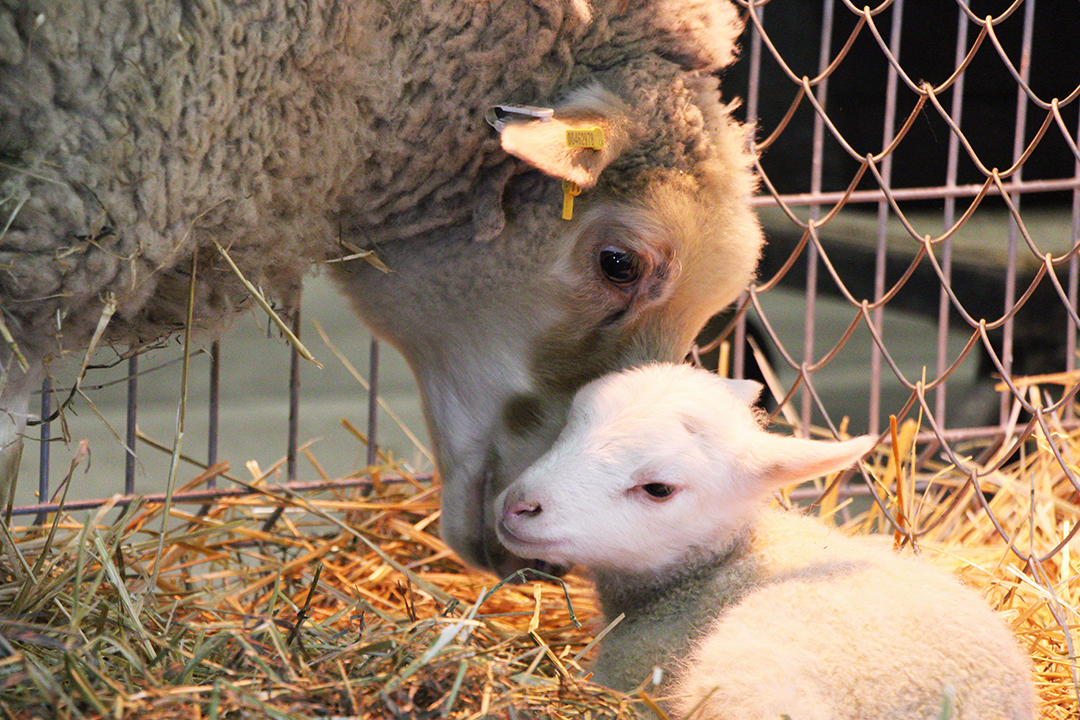
Study shows signs of Cache Valley virus in Saskatchewan
A recent baseline study at the Western College of Veterinary Medicine (WCVM) indicates a high prevalence of antibodies against Cache Valley virus (CVV) in Saskatchewan sheep as well as in other domestic and wild animals living in the province.
By Lynne GunvilleCVV is a mosquito-borne virus known to cause pregnancy failure and fetal malformations in sheep. Although CVV has not yet caused significant losses to sheep producers in Western Canada, recent cases in Ontario indicate that the virus is becoming more pervasive and may pose future problems in the West.
“We’re in a time where we have to consider that diseases we haven’t seen frequently before may become more common,” explains WCVM researcher Dr. Fabienne Uehlinger. “Whenever we’re dealing with mosquitoes as vectors, we have to consider that as seasons get warmer and longer, these viruses are changing and progressing just as the habitats are changing.”
Uehlinger, an assistant professor in the WCVM’s Department of Large Animal Clinical Sciences, was part of the research team which included Dr. Wendy Wilkins from Saskatchewan’s Ministry of Agriculture, Dr. Dale Godson from Prairie Diagnostic Services and Dr. Michael Drebot from the National Microbiology Laboratory in Winnipeg, Man. The research was funded by the Saskatchewan Agriculture Development Fund and the federal-provincial Growing Forward 2 program.
The scientists analyzed serum samples collected for a 2013-14 study involving Saskatchewan sheep as well as available samples from cattle, goats, horses and mule deer living in the province. Test results indicated a high prevalence of CVV antibodies in the sheep and in all of the other species.
Since there’s been little previous knowledge about CVV prevalence in North America, these findings are important, particularly for veterinarians and sheep producers in the West.
“We know the risk is there,” says Uehlinger. “It’s a potential risk for loss of production, so I would encourage producers to ask for an investigation if they experience an increase in abortions or malformed lambs.”
Uehlinger also points out that the high incidence of CVV antibodies in the other domestic and wild species is significant information that could lead to future studies investigating the effects of CVV on other livestock. Although CVV has been blamed for abnormal fetal conformation in cattle, there is no scientific evidence that its impact on other domestic and wild species is the same as it is for sheep.
Another important finding was that a large percentage of mule deer tested positive for CVV antibodies. Further studies could focus on investigating mule deer and white-tailed deer as possible reservoir.
Uehlinger points out that it’s important to have a baseline study such as this one — particularly as climate changes affect mosquito populations.
“When we did our study, we didn’t have any current comparison to anything in Saskatchewan or even in Canada,” Uehlinger explains. “But we now know that in 2013-14, this was the prevalence of the virus in sheep. So this virus is in our mosquito population, and if things are changing and our livestock are becoming more infected with the virus, that’s important information to know.”
